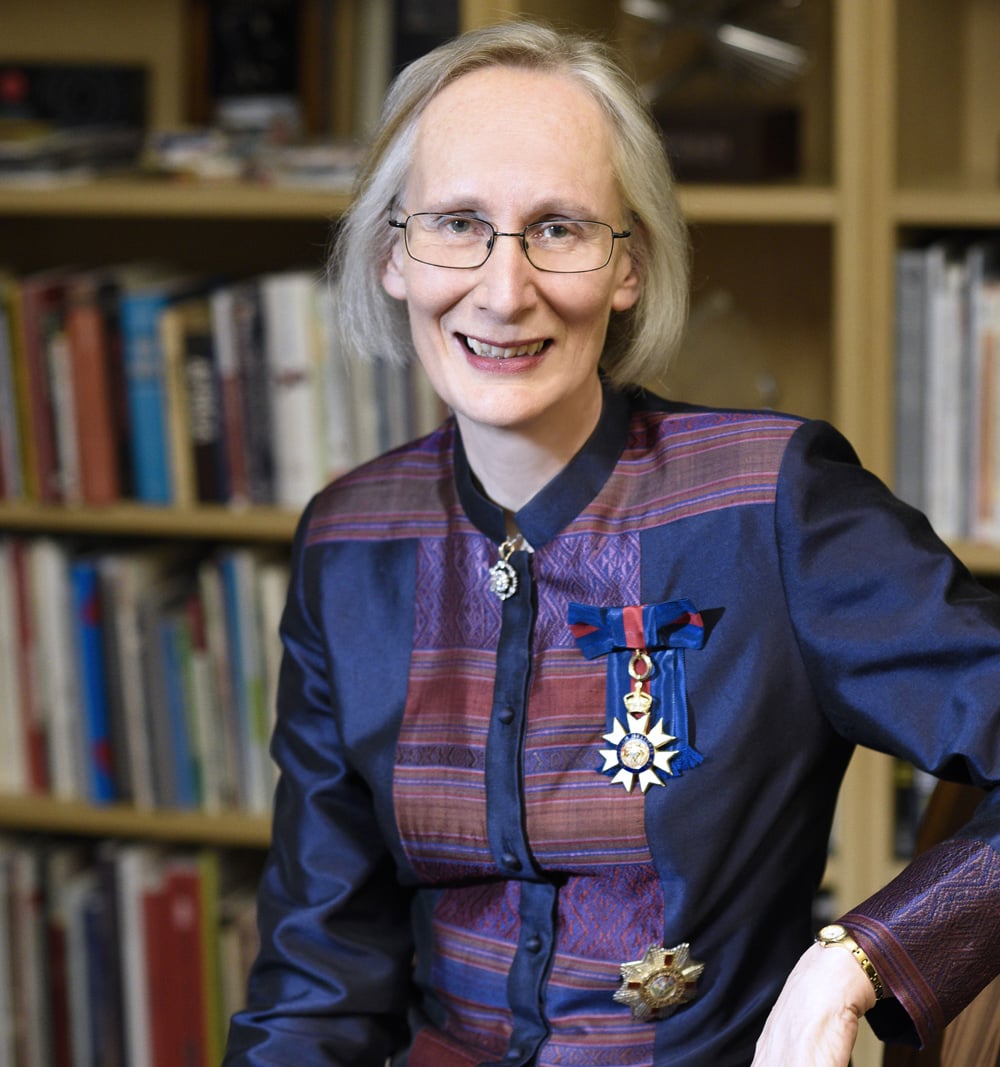Describe your current role?
I’m the Deputy Director and Provost, and Professor of Health Economics and Policy. Deputy Director and Provost means I deputise for the Director and oversee the academic affairs of the School.
What was the driving factor for wanting to work in academia and research?
I suppose my first interest was to work in government in some way, but my first job was as the economist in the Ministry of Health in Malawi, and I got interested in the analytical work and so went from there to post-graduate training and then moved straight into a research fellow job. So, I was interested in a more analytical role but the position came up so I took it.
Who has inspired you throughout your career?
That’s an interesting question. I see myself as fortunate, because I came from a fairly intellectual and academic background, particularly on the female side. My grandmother was one of the first women to do a PhD at the London School of Economics in 1902, and for her daughter – my mother – there was never any question but that I would have a career, that I would aspire to go to university, to Oxford, which I went to. So I suppose my family background, my mother particularly, and not just the academic background - she brought up myself and my brother- my father died when I was eight so she had to suddenly get a job. So I suppose she was a very formative influence in my life, and she ended up as a head mistress of a girls’ comprehensive school.
How important has it been to have strong mentors?
So I think it’s really critical at a number of points in one’s career to have either a formal or informal mentor. In the days when I was starting my career, mentoring wasn’t around, but there were certainly key people who were important sources of advice for me, usually my line managers. I was very fortunate in that respect, and particularly when I joined the School, my line manager was then Professor Patrick Vaughan, a key epidemiologist in the School who led a lot of developments in the areas of health services and health systems research. More recently, at key decision points I’ve drawn on a mentor to provide advice and I’ve found that really useful. That’s less the sort of personal relationship and more at various points when you’re not quite sure what to do, it’s a good idea to get someone independent to talk it through.
What’s the best piece of advice that you’ve received from a mentor?
It was from Patrick Vaughan, one of my first line managers. It wasn’t a piece of advice but it was a comment on my behaviour. He told me that I didn’t like surprises, and I realised he was right. I suppose the way I took that to heart was being careful not to react too quickly, to think through options, to not think something is disastrous and to take the time to work through solutions
What’s your career highlight?
That’s very straightforward. For me, it was being elected to the Royal Society, because as an economist, the Royal Society, which is the elite learned society in the UK, does not usually elect economists. But I think because I made very major contributions in the areas of improving health services and health systems I think they thought I qualified.
What challenges did you face in your career and how did you overcome them?
So again in a sense I feel fortunate because obviously there have been challenges, but I have never found them to be insuperable. I think that’s for two reasons, one of them being the background of being encouraged in my family to do whatever I wanted to do, I was always confident academically. The other is that I’m very naturally solutions oriented. If disaster hits, my immediate reaction is that my mind starts working immediately and fast on the way out of this and what to do. So I think I’m just naturally inclined to think about how to tackle challenges rather than just to suffer.
What do you see as the greatest challenge in global health?
I would comment on that from my background as an academic in health economics and health systems, because you could answer that in an enormous number of ways. And to me, it’s the pernicious nature of the aid industry. I think that it’s all to the good that there have been enormous increases in financial support available for low-income countries to help countries climb out of poverty. But the way that aid is organised has unfortunate effects, particularly in terms of reducing country leadership and country motivation to manage their own affairs. So I would like to see the international aid structure be much more capable of supporting country leadership within their own affairs, and in terms of coordinating with other countries to address issues at a global level.
How important is the Women Leaders in Global Health Conference?
Unfortunately I was not able to attend the first event in Stanford, so I’m really looking forward to this event in London. I think the idea that women should come together and address these big issues is really important. I think creating that community of women leaders should bring new light to bear on the big issues in global health, so I think it’s a really excellent initiative.
In three words, what advice would you give to women embarking on their careers?
I have only two: Be ambitious.
